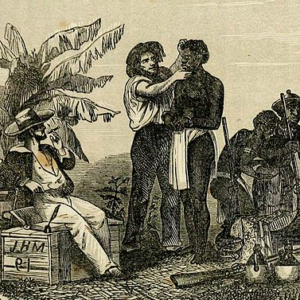Editor’s Note: For another viewpoint, see Point: 1619 Project Ignores True Miracle of America’s Founding.
It’s hard to hear the truth, especially when it flies in the face of stories you have been told since you were born. The truth can shock a person, usually leaving them with one of two choices — either defend the status quo or be open to additional facts.
The New York Times’ 1619 Project is taking America on a truth-seeking mission. Marking the 400th anniversary of the first slave ship docking on Virginia’s shores, the collection of essays reveal that the story we learned in school, in public life, and even in mainstream media omits many important facts.
As readers turn the pages, they are confronted with a raw, unfiltered and honest discussion about the true origins of the United States of America, not the romanticized version of American history we grew up with. This story, one of brutality, injustice and resiliency is far more difficult to embrace.
Over the last three years we watched in horror as racist extremists engaged in increasingly violent and brazen acts of domestic terrorism in the name of white supremacy. Each time, we turned away in disgust, swearing “this is not us — this is not America.” But this is us.
Our country is now, finally, beginning to engage in a debate — a debate about what America truly is, who it belongs to, and what it ought to be. By providing a full, unvarnished record of our collective history — including details that are often left from the history books — Nikole Hannah Jones and the authors of the 1619 Project push this debate forward.
For example, how many Americans know that in 1831 the United States produced nearly half of the world’s cotton — all picked by slaves? How many know that the bodies of these men, women and children were used as collateral for mortgages and other loans? Those bodies literally built wealth for white families and American industries, wealth that was passed down through generations.
This information is critical when trying to better understand the stark racial wealth gap that exists in America today, a direct result of 400 years of systematic inequality compounded to build white wealth while blocking most African-Americans from gaining a financial foothold.
How many public-school children are taught about the 1921 massacre in Tulsa, Oklahoma? Tulsa was home to “Black Wall Street,” the wealthiest black community in the country. But after a black man was accused of assaulting a white woman, a riot erupted that left at least 300 black people murdered, 10,000 more homeless, and 35 square blocks destroyed.
How could this happen? How could it be forgotten? Was there any justice?
There was and continues to be a presumption of danger and criminality for black people, one that is largely rooted in slavery. This presumption is reflected in our criminal justice system but also in everyday interactions with our fellow Americans.
Here’s the truth — we have a lot of work to do in order to better understand our collective history. It’s not going to be easy, because our past is not pristine. It’s full of unimaginable violence and harm, but it’s ours, and despite its ugliness our nation has undoubtedly made progress.
We’ve progressed in large part because of the contributions and sacrifices made by African Americans. We can no longer deny this fact, nor can we continue to deny African-Americans’ humanity and their unmeasurable contributions to this country. African Americans are just as American as white Americans and their experiences must be taught, learned and entrenched in American hearts and minds.
The Race and Ethnicity policy team at the Center for American Progress released a series of products that examined the legacy of slavery and its continued effect on present-day outcomes for African Americans. We found that the outcomes we see for black Americans and other people of color are directly related to the institution of slavery. As I’ve written before, it’s not about reframing American history — it’s about revealing it.
The essayists expose the reader to important facts consistently left out of our traditional historical framework — namely, that our country’s wealth and power rest at the feet of African-Americans. Our bodies, our continual fight for equal rights, our innovation and creativity, our commitment to the core values of democracy, should all be an intrinsic part of Americans’ understanding of our nation’s history. Despite all the atrocities and injustice, black Americans continue to show up.
Holding these truths as self-evident, as part of our collective past, is the only way to move toward that more perfect union. The truth will set us free, but only if we listen to it.

